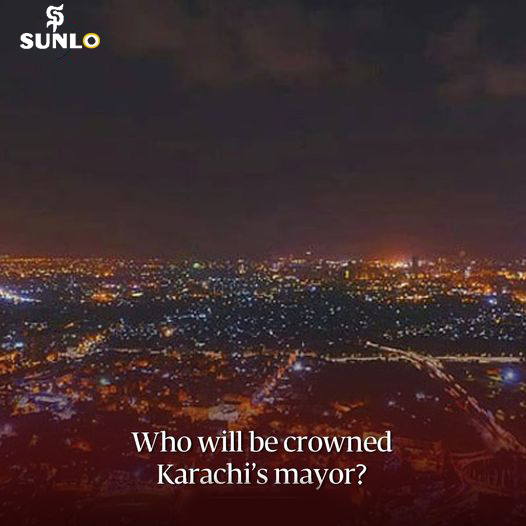KARACHI: Everyone is wondering who would be named mayor of Karachi since the second round of local government elections (LG) ended. “”Which candidate will land the coveted job in the major city?
” is another question.
According to the official results released by the Election Commission of Pakistan (ECP), the Pakistan Peoples Party (PPP) has overtaken Jamaat-e Islami (JI) as the single-largest party in the Karachi Metropolitan Corporation City Council following the LG elections. PTI, Pakistan Tehreek-e-Insaf, is currently in third place.
Recently, the JI received backing from the PTI in the mayoral elections. The issue will become clearer when the City Council meets to choose the mayor and deputy mayor, though.
This explanation looks at each party’s seat totals and a potential number-game scenario for the mayoral elections.
In Karachi, there are a total of 246 Union Committees, and 367 City Council members in total, including those who hold reserved seats. One percent seats (two seats) are set aside for the transgender community, one percent (two seats) for special people, 33 percent (81 seats) are designated for women, five percent (12 seats) are set aside for children, and five percent (12 seats) are set aside for labourers or peasants.
A candidate can only be chosen with a simple majority of the 367 members of the house. So, in order to secure the desired position, a contender must receive 184 votes.No one party can win the mayoral seat by itself, according to the present party consensus. The PPP holds 99 seats, followed by JI with 86, PTI with 41, PML-N with eight, and JUI-F with three. The TLP and independents each hold one seat.
Six seats on the court orders have results, but the ECP is presently withholding them.
Let’s now look at the distribution of reserved seats and determine who will receive what using this approach.
Divide by 246 and double the number of seats a party has won by 100.
For instance, the result of multiplying the PPP’s 99 seats by 100 and dividing by 246 is 40.24. The PPP will therefore receive an average of 40.24 percent of the seats across all categories.Initial seat distribution will be based on 40% of each group. The parties with the greatest number following the decimal point will be used to redistribute the remaining seats in the same order.
There are 81 designated female seats in the entire house. The PPP will be awarded 32 reserved seats for women in the first phase if we multiply this amount by 40.59 and round it off to the next integer, which equals 32.87.Similar to how seats for women will be awarded, seats for other categories of reserved seats will be distributed based on the total number of seats obtained by all parties using the aforementioned criteria.
Given the incomplete results, it is anticipated that the PPP would win 148 seats, followed by JI 131, PTI 60, PML-N 11, and JUI-F 4. However, this does not account for the remaining seats, thus the overall distribution of seats among the parties may vary.It is obvious that no one party can win the mayor’s seat on its own.
The JI candidate has a strong chance of winning with PTI’s backing, but it might be challenging for the JI to win over all PTI members and win their support.
The PPP is still optimistic that it will be able to elect its nominee as Karachi’s mayor with the help of supporters from other parties.

